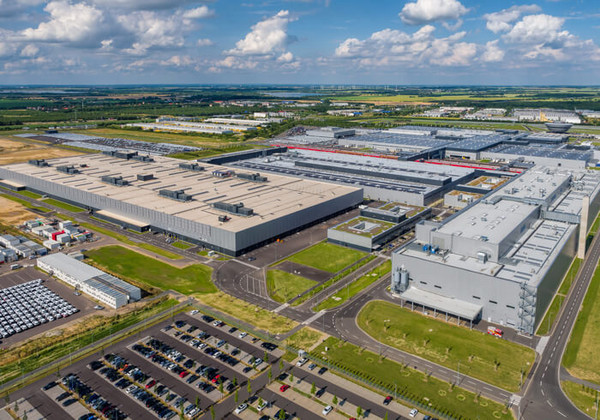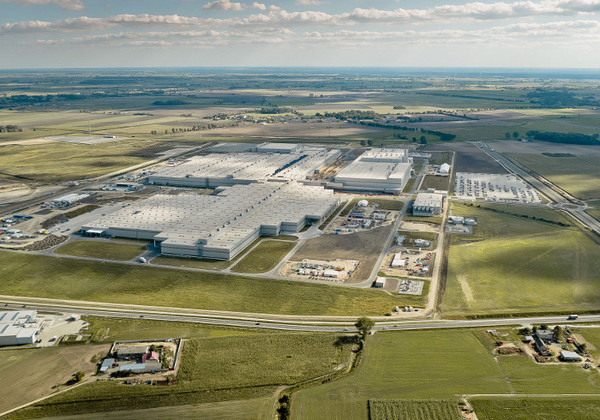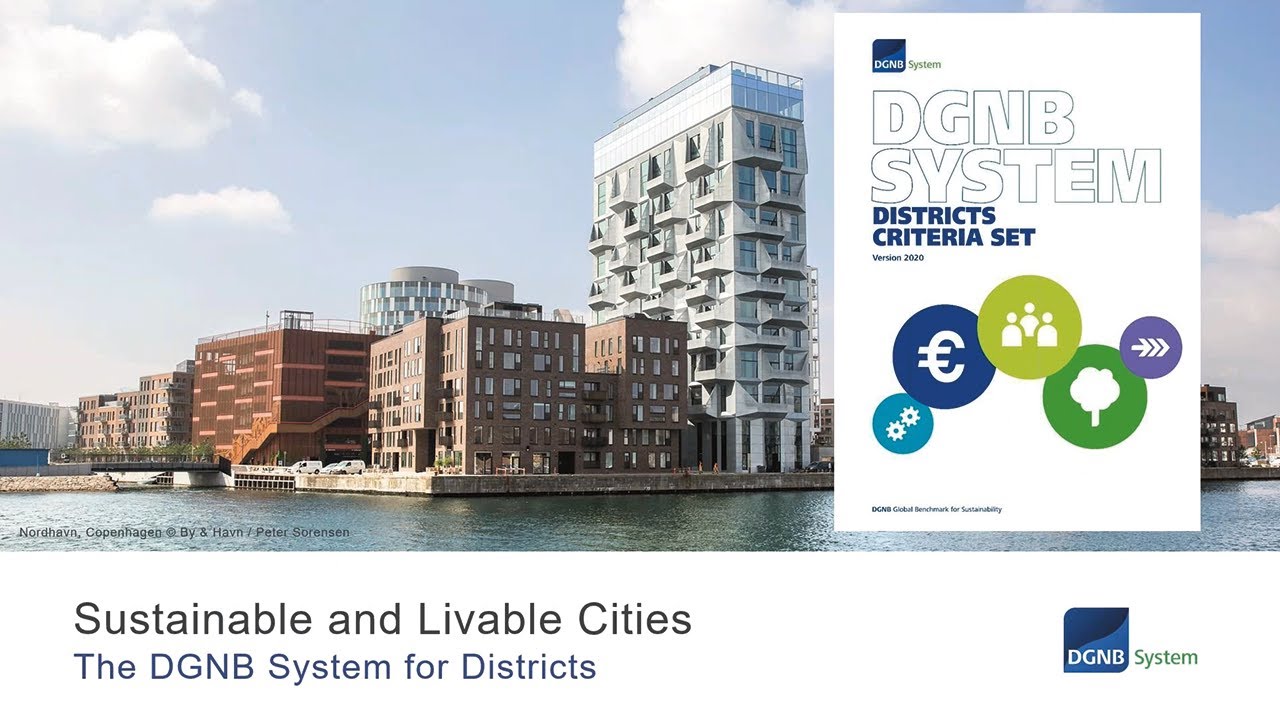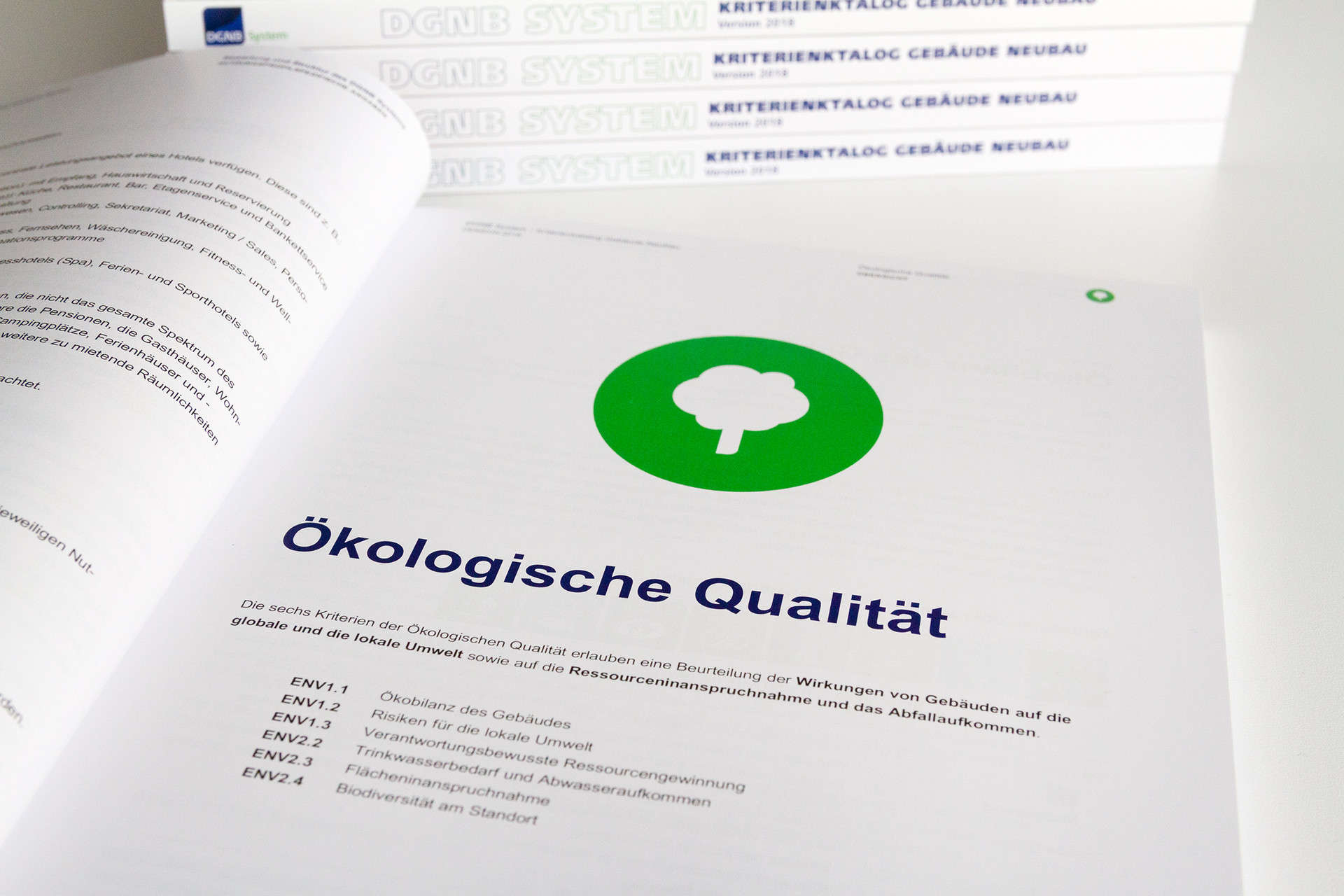Industrial sites are mainly locations used for industrial purposes, where a natural or legal person is responsible for the site. These industrial sites are increasingly discussed in the sustainability debate. For many companies, the importance of the topic is also increasing within a more comprehensive sustainability strategy. In this context, the design and optimisation of individual buildings is not enough. Sustainable industrial sites are more than the sum of their buildings. In addition to issues of climate protection, climate adaptation, sustainable mobility and logistics, networking with neighbouring districts also plays an important role for industrial sites. A key objective is to create synergies and closed loops wherever possible. Concepts for dealing with energy, water and waste are just as important as those for improving the quality of life and childcare. The DGNB scheme for industrial sites provides support as a planning tool.
The current DGNB System for Districts, version 2020, applies to industrial sites.
- Contribution to climate action through reduced emissions of greenhouse gases over the entire life cycle
- Adaptation to climate change (use of rainwater; sponge city)
- Improvement of biodiversity (e.g. through greening)
- Establishment of energy cycles and re-use of materials at district level (circular economy)
- High quality of stay for employees and visitors
- Sustainable mobility offers
- Saving resources and costs through the sensible use of technical systems (smart infrastructure)
- Maximum use and generation of renewable energies in the district
- High flexibility of construction sites, buildings and open spaces
- Holistic consideration of all relevant sustainability requirements
- Transparent and independent quality assurance
- Image building as an attractive and sustainable site
- Communication of the project to the public and increase of acceptance
- Contribution to the product or corporate strategy
- Increasing the attractiveness of the location to current and future employees
- International applicability and comparability
- Contribution to the United Nations Sustainable Development Goals (SDGs)
- Process of certification as a basis for the development of company-wide sustainable planning and building standards
- Risk minimisation by avoiding potentially hazardous substances for health and further measures
The scheme is intended to support the planning and construction of attractive and at the same time resource-efficient industrial sites. In addition to the quality and resource requirements of the buildings, the scheme also takes into account the open spaces, infrastructures and surroundings, as these factors have a significant influence on the quality and performance of an industrial site and define the framework for sustainable development and use. Furthermore, planning and production processes are also taken into account in this scheme.
The scheme focuses on private production and development sites. Unlike the schemes for other types of districts, the quality of the buildings (e.g. workplace comfort, pollutants) is becoming more important in the assessment of industrial sites. However, the buildings themselves do not have to be certified individually for a certification of an industrial site.
Selected DGNB certified projects

Industrial Sites

Industrial Sites
The criteria sets available
DGNB Criteria Set Districts, Version 2020
Project registration

To register a project, clients must first hire a DGNB Auditor. This auditor can then register the project. Auditors also accompany the entire process and take over the verification and submission to the DGNB. They are active worldwide and specialise in certain schemes.
The current DGNB System for Districts applies to industrial sites.
Your contacts

Ursula Schehrer
Senior Consultant Certification Districts
- Phone: +49-711-722322-77
- Email: u.schehrer@dgnb.de



